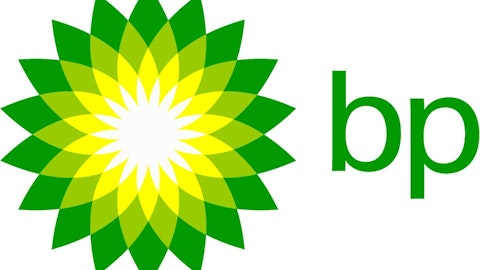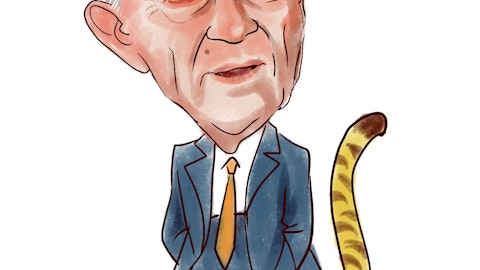LONDON — Most investors, like most journalists, hate admitting their mistakes. Since I’m both an investor and a journalist, this is going to be doubly painful, but here goes. I sold my stakes in Barclays PLC (ADR) (NYSE:BCS)and Lloyds Banking Group PLC (ADR) (NYSE:LYG)on 30 December 2011, exactly three days before they finally began a full-blooded recovery. Since I sold, both stocks have roughly doubled in value. And with analysts now slapping the words “strong buy” over both banks, my decision just looks worse by the day. So what does the future hold for these two banking monoliths?
Meat is murder
It has been a good year or so for Barclays and Lloyds, and it just gets better. Shares in Barclays rose 8% on Wednesday after it filed a 26% year-over-year rise in adjusted pre-tax profit to 7.04 billion pounds, and further gladdened the market by unveiling a massive 1.7 billion-pound cost-cutting plan. Only the stock market could celebrate 3,700 job losses, but since this should generate nearly 500 million pounds worth of savings in the first quarter, you can see why. Investors were also delighted by Barclays’ plan to start raising dividend payments from 2014, with the aim of paying 30% of the group’s profits over time. These were meaty results, and murder for me.
Lean or mean?
There was a bit of misery for me to cling to, though. Barclays still faces potential litigation and class action over its role in fixing LIBOR, and has set aside a whopping 2.6 billion pounds in PPI mis-selling compensation. There is another scandal in the pipeline, for mis-selling Interest Rate Hedging Products to smaller businesses, and nobody knows how much that will cost. Barclays’ capital cushion, or core tier 1 ratio, fell slightly, and it posted a 466 million-pound statutory loss for the fourth quarter of 2012. New chief executive Antony Jenkins has no investment banking experience, which worries some analysts. Barclays currently yields just 2%. The only thing it hasn’t been accused of in the last five years is mis-selling its own grandmother. Its five new stated values of “respect, integrity, service, excellence and stewardship” sound good in a press conference, but could prove meaningless in practice.
Lloyds’ commotions
Lloyds has more than a few problems of its own. It has had to fork more than 5 billion pounds following their PPI mis-selling, and it also got caught up in the LIBOR scandal and the interest rate swaps scandal, and… oh, I lose count. Many investors will be concerned that its own cost-cutting strategy, shedding 15 of its 30 international activities by 2014, will make the bank unduly dependent on the ailing U.K. market. LLoyds is still 40% owned by the U.K. government, and the ultimate sell-off will no doubt dent its share price. If you thought Barclays’ 2% yield was bad, Lloyds doesn’t pay a dividend at all. As yet, it hasn’t been found guilty of mis-selling its own grandmother, but you can’t rule anything out.
LLOY? LOL!
Unfortunately for me, there is still plenty to tempt investors. Lloyds boasts a 30% market share in traditional corporate and retail banking, which will be worth something when the recovery comes. Business disposals have boosted its underlying profits and slashed billions off its costs. Its balance sheet and core tier 1 ratio are getting stronger by the day. Even the EU ruling forcing it to sell 632 branches is likely to work in its favor, having little impact on profitability, while giving management one less thing to worry about. As the U.K. economy grinds back to growth over the next few years, I expect to see Lloyds rise ahead of the market. That’s good news for loyal, long-suffering investors, bad news for me.
BARC bites back
And you know the worst thing about all of this? I saw it coming. Even as I clicked the sell button, I sensed the big banks would enjoy the mother of all revivals. They aren’t only too big to fail, they are too street-wise. So why did I sell? It was partly for sensible investor reasons, primarily, that their sprawling balance sheets make them impossible to value properly. But the truth is, that doesn’t matter. If the U.K. is to recover, we need the big banks to lead the way. Politicians and central bankers know this, and tailor policy accordingly. You can’t keep a good banker down for long, let alone a bad one.
Mis-selling scandal
Over the past six months, Barclays is up 70%, Lloyds is up 62%. No other stock in my portfolio can match that. The worst thing is, there is plenty more to come. Plenty more volatility, yes, but plenty more growth, and eventually, plenty more dividends. So what have I learned from this? Firstly, the virtue of patience. I bought both stocks after the banking crisis, as a speculative punt. But I simply didn’t give them enough time. I can’t bear to buy them back at today’s prices. Banks are famed for their mis-selling scandals, but I have committed an expensive one of my own. As bank stocks continue their recovery, my punishment will last for years.
The article Was Selling Barclays and Lloyds Banking Group My Biggest Ever Mistake? originally appeared on Fool.com and is written by Harvey Jones.
Harvey doesn’t hold shares in any company mentioned in this article, and is very, very annoyed…
Copyright © 1995 – 2013 The Motley Fool, LLC. All rights reserved. The Motley Fool has a disclosure policy.






